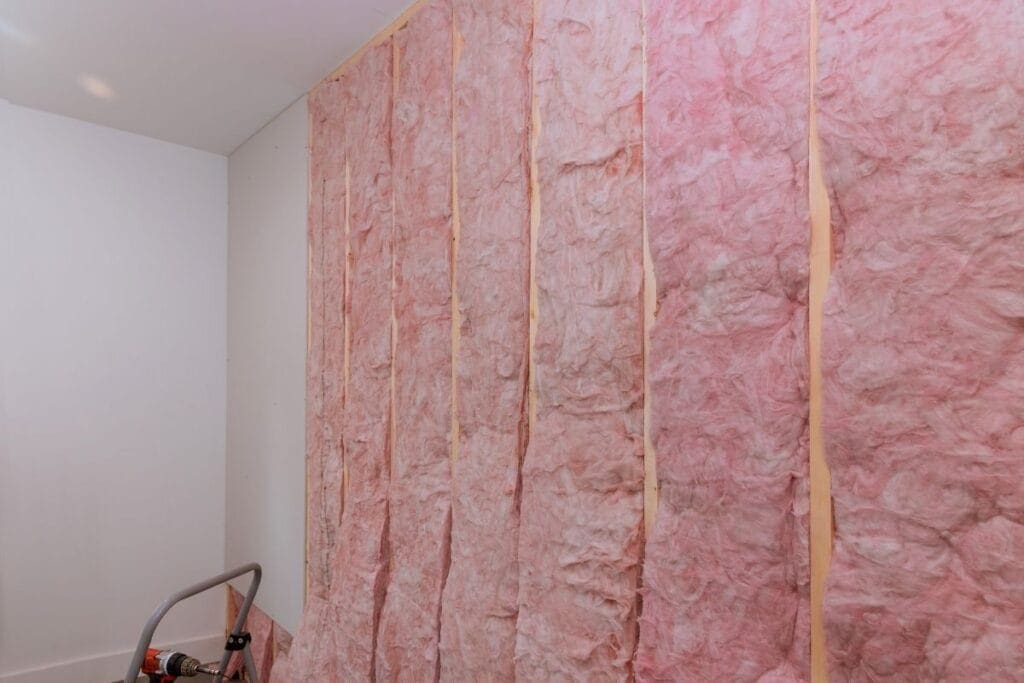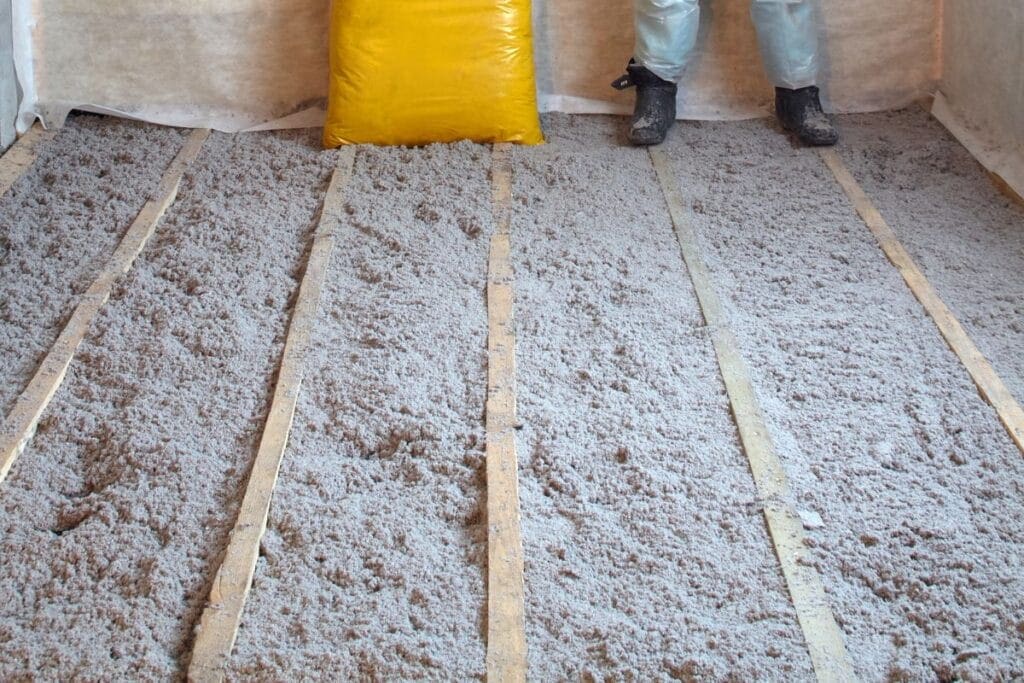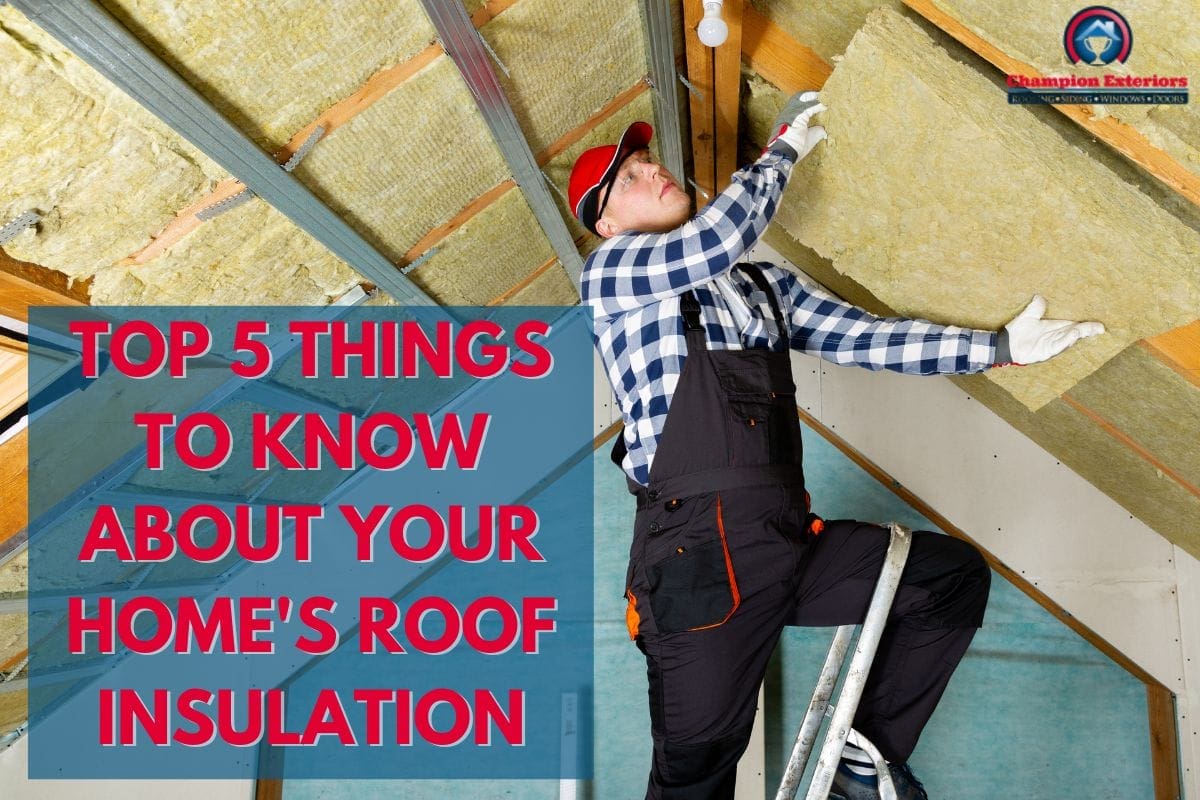Are you aware of the importance of roof insulation for your home? If not, you’re in the right place! This blog post will provide you with valuable insights into the world of roof insulation and the five essential things you need to know about it. From understanding different types of insulation materials to the significance of R-value and insulation thickness, we’ve got you covered.
#1 The Role of Roof Insulation
Roof insulation plays a crucial role in boosting your home’s energy efficiency. By providing a barrier between the interior of your home and the outside environment, roof insulation helps to regulate the temperature inside.
Keeping Your Home Cool During Summer
During the summer months, the insulation of a roof helps to keep the cool air generated by your air conditioning system trapped inside your home. This means that you can enjoy a comfortable indoor temperature without having to constantly run your air conditioner on full blast.
In addition to keeping your home cool, roof insulation also prevents heat from entering your living spaces. This is especially important in regions with hot climates, as it helps to reduce the amount of energy needed to cool your home and lowers your carbon footprint.
Keeping You Warm In Winter
Similarly, during the winter, roof insulation acts as a barrier against the cold air outside, preventing heat from escaping. This keeps your home warm and cozy without relying heavily on heating systems, thereby reducing energy consumption and saving you money.
However, to fully enjoy the benefits of roof insulation, you must choose the right type and installation technique to ensure its efficiency.
#2 Roof Insulation Materials
When it comes to insulating roofs, there are various materials available. Each insulation material has its own unique properties and benefits.
Fiberglass

One common insulating material is fiberglass. Fiberglass insulation is made up of tiny glass fibers that are woven together. It is lightweight and easy to install, making it a popular choice for many homeowners. Fiberglass insulation is also effective at reducing heat loss and improving energy efficiency.
Cellulose

Another popular choice for roof insulation is cellulose. Cellulose insulation is made from recycled paper products, such as newspapers. It is treated with fire retardants to make it safe and resistant to flames. Cellulose insulation is known for its excellent thermal performance and soundproofing properties. It is also a more environmentally friendly option compared to other insulation materials.
Overall, when choosing an insulation material, it is important to consider factors such as the climate in your area, your budget, and the R-value.
#3 R-Value and Insulation Thickness
To truly maximize energy efficiency and create a comfortable environment, understanding R-value and insulation thickness is essential.
What is R-Value?
The R-value measures the ability of insulation material to resist heat flow. The higher the R-value, the better the insulation’s thermal performance. It is important to choose insulation with an R-value that is appropriate for your climate.
The Role of Insulation Thickness
Insulation thickness also plays a crucial role in determining its effectiveness. The thickness of insulation is directly related to its R-value, with thicker insulation generally having a higher R-value.
Note: Insulation thickness is determined by factors such as the insulation material, the desired R-value, and local building codes. The thickness of insulation is typically measured in inches, with common values ranging from 3 to 12 inches. It is important to note that increasing insulation thickness beyond a certain point may not necessarily result in significant energy savings.
By understanding the R-value and insulation thickness, you can ensure that your home is properly insulated and energy efficient.
Other factors such as air sealing and proper installation also play a crucial role in the overall effectiveness of insulation. Therefore, it is important to consult with a professional roof insulation contractor to determine the appropriate insulation thickness for your home.
#4 Proper Roof Installation Techniques
Ensuring proper installation of your roof insulation is imperative to achieve optimal energy efficiency and a comfortable living environment.
Ensure Uniform Installation
It is important to ensure that the insulation is installed in a continuous and uniform manner. Gaps or holes in the insulation can lead to thermal bridging, where heat is conducted through the roof, reducing the overall effectiveness of the insulation. To prevent this, it is crucial to carefully install the insulation, ensuring that it fits tightly and snugly into all corners and crevices.
Avoid Gaps
Proper sealing of any joints or seams in the insulation is essential to prevent air leaks and maintain the insulation’s effectiveness. Gaps can also lead to moisture buildup, mold growth, and pest infestations.
Prevent The Compression Of The Material
It is also important that the insulation material is not compressed or compacted. Compressing the insulation can reduce its thickness and density, which in turn reduces its thermal resistance. This can result in a decrease in the overall energy efficiency of your home.
To avoid compression, it is important to choose the right type and thickness of insulation for your roof and to follow the manufacturer’s guidelines for installation. It is also important to avoid placing any heavy objects or equipment on top of the insulation, as this can lead to compression and reduce its effectiveness.
By taking care of these requirements, you can ensure that your roof insulation is installed correctly, providing you with optimal energy efficiency and a comfortable living environment.
#5 Common Issues and Maintenance Tips
One of the most common issues with roof insulation is improper installation, which can lead to heat transfer and inconsistent indoor temperatures. When the insulation is not installed properly, there can be gaps that allow air to escape or enter the home. This can result in higher energy bills as your heating and cooling systems have to work harder to maintain the desired temperature.
Additionally, improper installation can lead to uneven insulation distribution, causing certain areas of your home to be warmer or cooler than others. This can create discomfort and make it difficult to regulate the temperature throughout your living space. To avoid these issues, follow these steps:
👉 It is essential to hire a professional contractor who is experienced in roof insulation installation. They will ensure that the insulation is properly installed.
👉 Regular maintenance is also crucial for the longevity and effectiveness of your roof insulation. Inspect the insulation for any signs of damage, such as moisture or mold growth, and address them promptly.
👉 Additionally, make sure that the insulation is not compressed or deteriorating over time. If you notice any issues, it is best to consult a professional to assess the situation and provide appropriate solutions.
By investing in quality roof insulation and taking the necessary steps to maintain it, you can enjoy a more comfortable and energy efficient home. With these five things in mind, you can avoid costly mistakes and enjoy a healthier and more sustainable living environment.
If you need reliable, cost effective, and durable roofing services in New Jersey, we’re here to help!
Discuss Your Roof Insulation Needs With Our Experts
At Champion Exteriors, we’ve been upgrading and fortifying homes in New Jersey for many years. Our home insulation experts have helped numerous happy customers throughout the state, and we look forward to helping you too. If you are looking for a safe and effective roof insulation service in New Jersey, we can provide it within your budget. So, call us at (800) 276-0032 and schedule a free consultation and estimate with our experts.
Frequently Asked Questions
A. Yes, roof insulation can help reduce noise from outside sources. It acts as a noise barrier, absorbing sound and preventing it from entering your home, making it quieter and more peaceful.
A. The average lifespan of roof insulation varies depending on factors such as material type and installation quality. However, it typically ranges from 20 to 30 years, providing a long lasting solution for your home.
A. Yes, it is possible to install roof insulation on existing roofs. This process involves adding insulation material to the underside of the roof, which helps improve energy efficiency and reduce heat loss.
A. There may be government incentives or rebates available for installing roof insulation. These can vary depending on your location, so it’s worth checking with local authorities or energy efficiency programs.
A. Roof insulation does not require regular maintenance. However, it is important to periodically check for any signs of damage or wear to ensure its effectiveness in maintaining energy efficiency and preventing heat loss.


